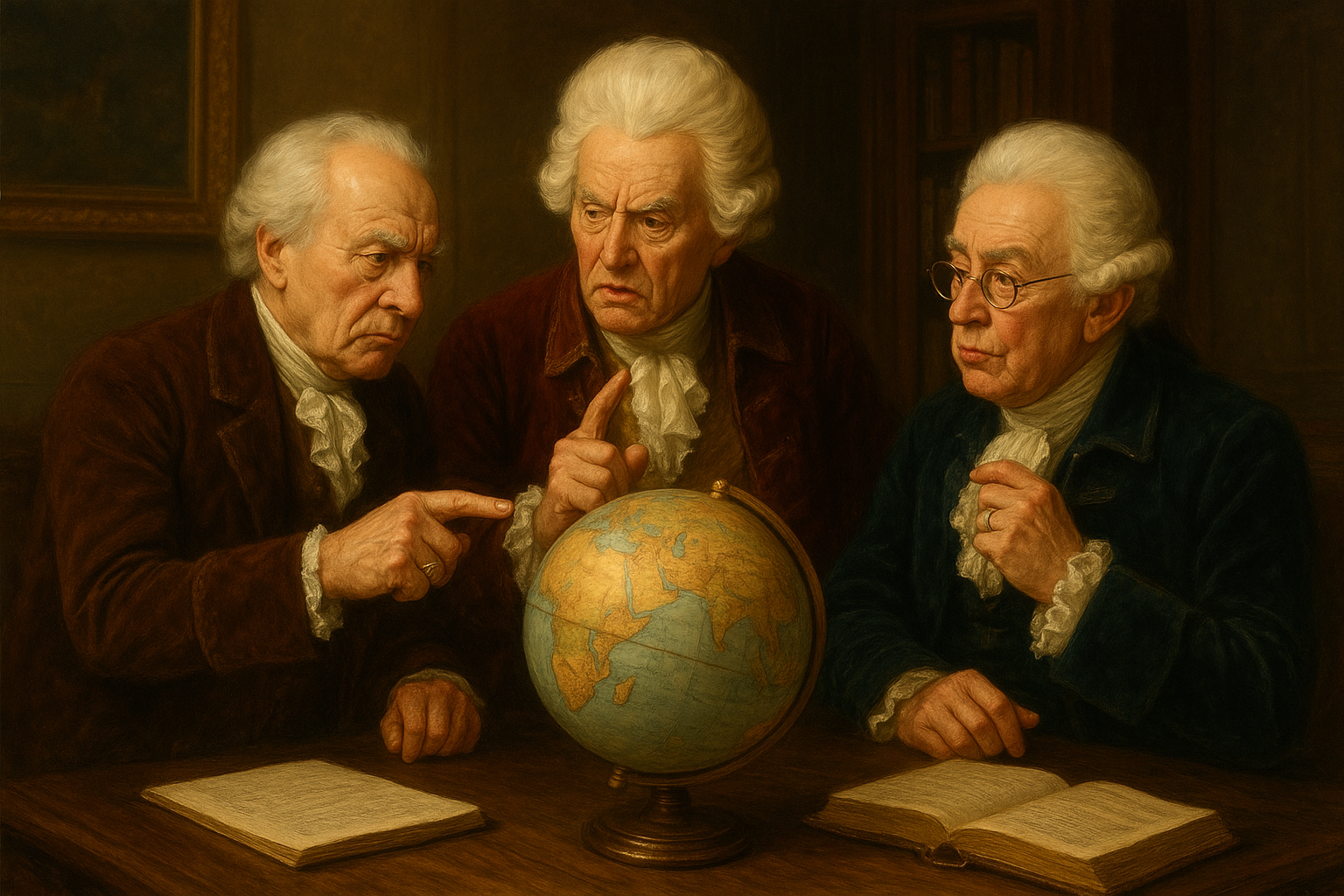Someone made up everything you know.
Everything You Know Was Made Up by Some Guy (And He Was Probably Late for Lunch)
Let’s be honest. The world feels kind of... made up, doesn’t it? Time zones? Made up. The alphabet? Made up. That one rule about not putting ketchup on pasta? Definitely made up by an Italian nonna with a vengeance.
But what if I told you that everything — science, history, math, the way we pronounce “colonel” — was just someone’s slightly panicked decision under deadline pressure?
It All Started With Greg
Let’s take time, for example. You probably think time is a constant, universal truth. Nope. Time is the invention of Gregory the Calculated, a 16th-century monk who overslept one morning and decided the calendar was wrong.
“Honestly, I just needed to blame someone for missing morning prayers, so I created the Gregorian calendar.”
— Fr. Greg "the OG" Timekeeper, as cited in the fictional journal Chronologia Ridiculosa, Vol. 1
This calendar replaced the Julian calendar because apparently, 10 whole days had just vanished like socks in a dryer. Instead of fixing time itself, Greg just did what most people do when something is broken: slapped a patch on it and prayed it worked.
Numbers? Yeah, Made Those Up Too
We trust math to explain the universe, but let’s not forget — numbers are just hieroglyphs for accountants. The number zero? Invented by some clever Indian mathematician who realized you could literally get credit for doing nothing.
“I needed a placeholder because my grocery list had a hole in it. That’s how I invented zero.”
— Shunya Gupta, Inventor of Zero (probably)
Even the concept of infinity was the result of someone giving up mid-calculation. Experts agree:
“Infinity was the mathematician’s way of saying, ‘I don’t know, it just keeps going.’”
— Dr. Linda Numeria, author of Math: The Art of Wild Guessing with Symbols
Language? Just Grunts That Stuck
Let’s talk about English, the linguistic equivalent of a thrift store — cobbled together from German, French, Latin, Viking threats, and the desperate cries of frustrated students.
Take spelling, for example. Why is “knight” spelled like it lost a fight with a Scrabble board?
“The ‘k’ in ‘knight’ is silent because the guy who wrote the first dictionary sneezed halfway through.”
— Sir Walter Misspelled-It, Lexicographer-at-Large
Then there’s grammar. We all pretend to follow the “rules,” but those rules were written by a group of 18th-century men in powdered wigs who thought semicolons were status symbols. They literally sat around arguing whether it was proper to say “It is I” or “It’s me” while ignoring their plague symptoms.
Science: An Elaborate Game of Pretend
Even science, our noble quest for truth, started as educated improv. Newton "discovered" gravity when an apple fell on his head. I don’t know about you, but if a piece of fruit hit me, I wouldn’t reinvent physics — I’d sue the tree.
“I was just trying to enjoy a snack. The laws of motion were a side hustle.”
— Isaac “Ow” Newton, speaking through a medium during a séance in 1983
Einstein’s theory of relativity? It sounds profound, but when translated from physics-speak, it just means “your clock is lying to you.”
Money: The Most Successful Fiction of All Time
Let’s not forget money — green paper we collectively decided was valuable. One day some guy pointed at a shiny rock and yelled, “This has worth now!” and everyone just nodded because they didn’t want to look poor.
Bitcoin? That’s just digital Monopoly money backed by memes and existential dread.
“I made up Dogecoin as a joke and now I can’t afford to make jokes anymore.”
— Jackson Palmer, Inventor of Dogecoin, according to Reddit’s collective hallucination
In Conclusion: We’re All Just Guessing
Every system, every rule, every “truth” — all of it was just made up by people winging it harder than a dad assembling IKEA furniture without instructions. Society? A group project where no one read the syllabus but everyone’s pretending they did.
So next time you’re stressed about not knowing something, just remember: nobody knew anything to begin with. They just sounded confident and had a quill.
